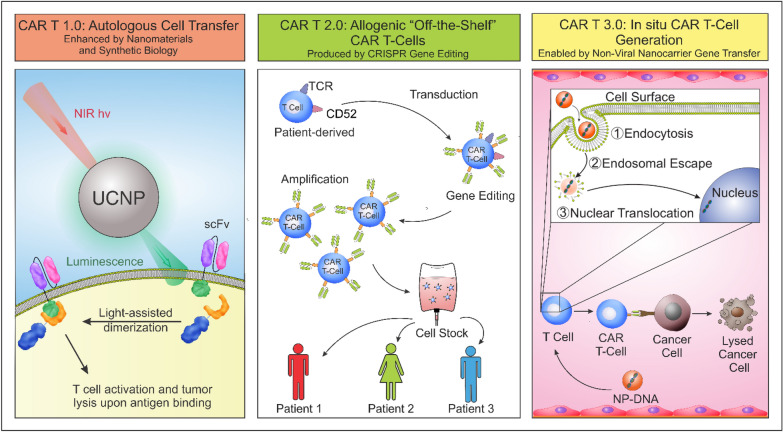Fig. 6.
Next-generation approaches for improving CAR T-cell therapy. Advances that combine synthetic biology and optogenetics allow the design of switchable CAR T-cells with greater specificity and spatiotemporal control of activity to improve current autologous ACT (CAR 1.0). A step forward would be to engineer CAR T-cells with CRISPR multiplex gene editing to inactivate or knockout genes such as TRAC and CD52 (CAR 2.0). The edited cells can then be expanded and stored as an “off-the-shelf” product. To decrease the time and costs associated with ACT, a potential direction is to adapt an in situ CAR T-cell manufacturing approach to reprogram endogenous T cells into CAR T-cells (CAR 3.0). Combined with genomic sequencing technology, this can be a personalized approach with increased efficacy and decreased overall costs

